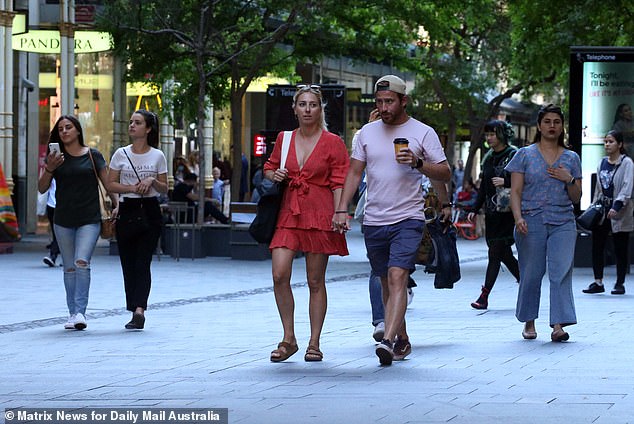Brisbane woman reveals why Gen Z is fed up with life in Australia: ‘There’s no light at the end of the tunnel’
A young worker is disillusioned about her future in Australia, where the enormous cost of housing means she will have to work for the rest of her life to keep a roof over her head.
Nikki, who lives in Brisbane and works as an administrative assistant in the film industry, says the rising cost of living has slowed down her personal life.
The 22-year-old uploaded a video to TikTok earlier this month to complain about never having enough “waking hours” to herself.
“Has anyone in their twenties been terribly put off by realizing that they have to work for the rest of their lives just to feed and house themselves?” she asked.
“They’ll have to wait all week for the weekend, but the weekend is never long enough to provide any real relief.”
Nikki, who works full-time, says she spends most of her income paying the rent and buying food.
She lamented the bleak future shared by Generation Z, even as she acknowledged that previous generations were also struggling.
“I know it’s the same for every generation. “All the adults in my life have been broke at some point in their 20s, but for me and people my age, it doesn’t seem like there’s any light at the end of the tunnel,” she shared. news.com.au.
The aspiring lawyer added that she fears she will never get ahead financially and fears she will have to sacrifice her studies to earn an income.
“If I continue as I am now, I won’t finish my studies until the end of next year,” she says.
Nikki took an office job to build her CV and has now chosen to take on more hours and attend university part-time.
“I hope that once I graduate I can progress in my career, but I have no hope that my wages at that point will be in line with the cost of living,” she said.
Nikki (pictured), an administrative assistant living in Brisbane, asked other young Aussies if they felt they would have to work for the rest of their lives to meet the necessities
Nikki said she is working to save money so she can take a six-month break from the workforce to complete her studies and stay with her parents in Melbourne.
Many who commented on her TikTok video sympathized with her views.
“Yes, it makes me want to die a little as soon as I get a job and realize I haven’t been the same for the rest of my life,” one viewer wrote.
Another added: ‘I just finished my one month internship and I’ve had this feeling all month even though I enjoyed my internship.’
A third said: ‘It’s like, come on. I’m just a girl,” a third added.
Others, however, accused Nikki of having first-world problems and gaining a sense of perspective.
‘That’s life, get used to it and be grateful for what you have. You could live in a third world country without food, water or a roof over your head,” one viewer wrote.

Nikki said she feared for younger Australians, who she said face bleak prospects for getting ahead financially. The photo shows shoppers at Pitt Street Mall in Sydney
A Youth Survey Report published last year by Mission Australia found that 31 percent of respondents aged 15 to 19 were concerned about the economy and financial matters.
Fears of becoming homeless also rose from 12 percent to 19 percent as the price of rents skyrocketed due to record levels of immigration.
The federal government attempted to alleviate some of the financial concerns in last week’s budget by Remove $3 billion from HECS debt indexation.
The change will apply to all HELP, VET student loans, Australian Learner Support Loans and other student loan accounts in existence on June 1 last year.
On average, the amount students owe to the ATO for their HECS and HELP debt will be reduced by $1,200.
Australians continue to battle the rising cost of living after inflation hit a massive 7.8 per cent in December 2022, only to fall to 3.6 per cent in March 2024.
The Reserve Bank of Australia has presided over 13 rate hikes since May 2022, with the Reserve Bank leaving rates unchanged at 4.35 percent for the fourth month in a row at their latest monetary policy meeting.
